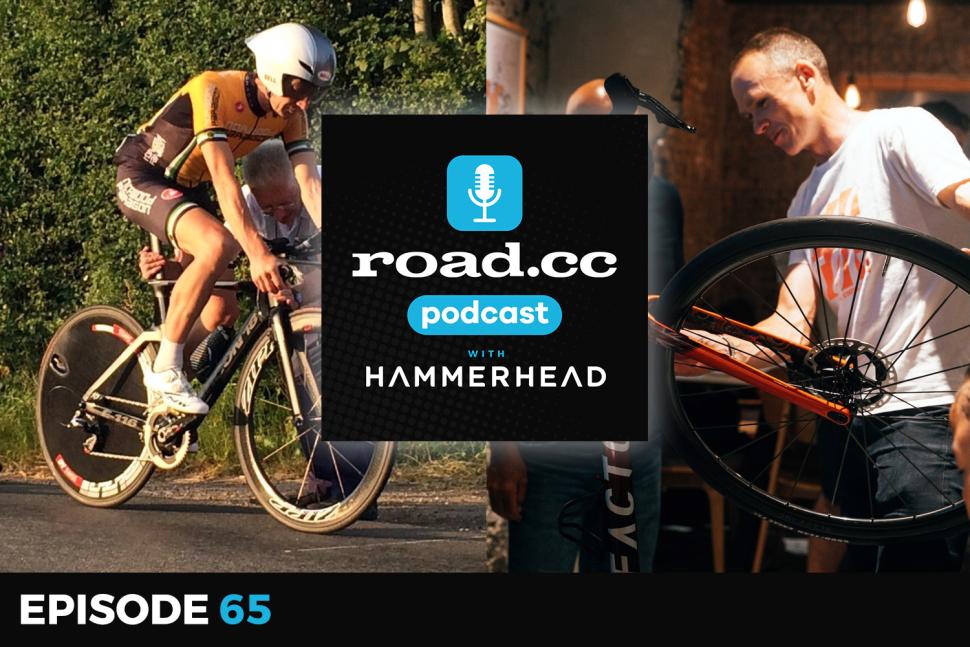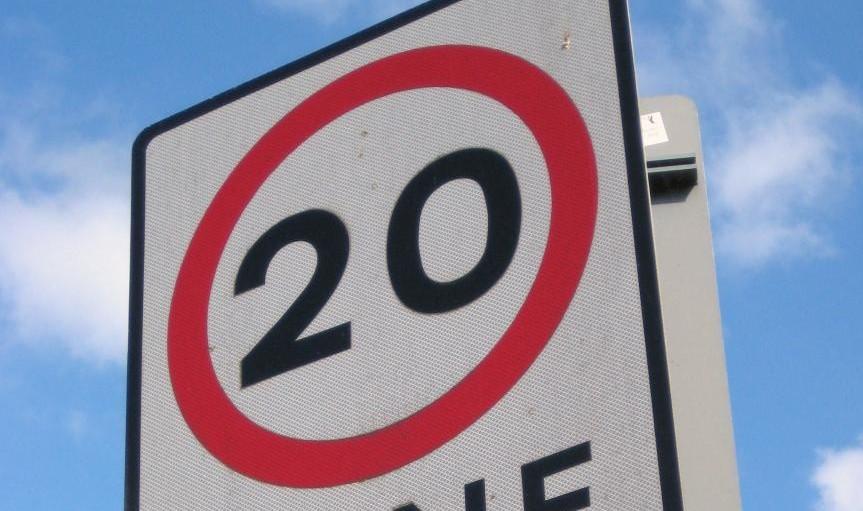- News
- Reviews
- Bikes
- Accessories
- Accessories - misc
- Computer mounts
- Bags
- Bar ends
- Bike bags & cases
- Bottle cages
- Bottles
- Cameras
- Car racks
- Child seats
- Computers
- Glasses
- GPS units
- Helmets
- Lights - front
- Lights - rear
- Lights - sets
- Locks
- Mirrors
- Mudguards
- Racks
- Pumps & CO2 inflators
- Puncture kits
- Reflectives
- Smart watches
- Stands and racks
- Trailers
- Clothing
- Components
- Bar tape & grips
- Bottom brackets
- Brake & gear cables
- Brake & STI levers
- Brake pads & spares
- Brakes
- Cassettes & freewheels
- Chains
- Chainsets & chainrings
- Derailleurs - front
- Derailleurs - rear
- Forks
- Gear levers & shifters
- Groupsets
- Handlebars & extensions
- Headsets
- Hubs
- Inner tubes
- Pedals
- Quick releases & skewers
- Saddles
- Seatposts
- Stems
- Wheels
- Tyres
- Health, fitness and nutrition
- Tools and workshop
- Miscellaneous
- Buyers Guides
- Features
- Forum
- Recommends
- Podcast
news
 podcast-1500-episode65
podcast-1500-episode65Why the 20mph zone time trial ban could be the “tip of the iceberg” for British racing + Chris Froome’s bike set-up mystery explained
Could the widespread implementation of 20mph speed limits across the UK spell the end of Britain’s long and venerable history of time trialling? On episode 65 of the road.cc Podcast, we turn our attentions to Cycling Time Trial’s recent refusal to sanction courses that feature 20mph zones, and the serious impact this could have on clubs and the time trialling scene in general. Meanwhile, later in the episode, we delve into a mystery that has baffled cycling fans for centuries (or at least the last three years)… What is going on with Chris Froome’s bike?
Listen to the road.cc Podcast on Apple Podcasts
Listen to the road.cc Podcast on Spotify
Listen to the road.cc Podcast on Amazon Music
In September, as I’m sure you all know by now, a 20mph default speed limit in built-up and residential areas was introduced throughout Wales.
And earlier this month, Cycling Time Trials, the governing body for races against the clock in England and Wales, responded to the speed limit change, which has also been reflected across many parts of England, by writing to its districts informing them that courses which take place on 20mph zones cannot be used or sanctioned, and that they “must ignore any suggestion” that the speed limits do not apply to cyclists.
To discuss this marked change in policy – which has led some cyclists to worry that time trialling in general could be under threat in the UK – Dan and Ryan are joined by solicitor Jonty Gordon, the chairman of Caernarfon-based Clwb Beicio Egni Eryri and director of 1816 Cycles, who believes that the ban will have a devastating impact on the number of useable time trial courses in England and Wales.
Jonty also assesses the legal and safety ramifications of Cycling Time Trial’s new policy, how it could lead to youngsters and women turning away from the sport, and why it may prove merely the “tip of the iceberg” when it comes to the future of bike racing on British roads.
Spot the difference...
In part two, Ryan sits down with professional bike fitter Luke Craddock, the owner and director of Synergy Performance, as they both try to wrap their heads around Chris Froome’s recent, rather controversial bike set-up comments, which saw the four-time Tour de France winner reveal he had noticed “huge discrepancies” between his current Israel-Premier Tech position and the one he used during his gloriously successful Team Sky days – a revelation described as a “load of BS” by former pro Michael Rasmussen.
During the interview, Luke uses his bike fitting expertise to assess how Froome’s 2015 and 2023 set-ups could be up to three centimetres apart (and how the multiple grand tour winner could fail to notice such a “huge” discrepancy) and the impact of the British rider’s almost career-ending 2019 crash on his set-up, while noting that positioning on a bike is not an exact science – even for those sticklers to detail at Ineos.
At the time of broadcast, our listeners can also get a free Hammerhead Heart Rate Monitor with the purchase of a Hammerhead Karoo 2. Visit hammerhead.io right now and use promo code ROADCC at checkout to get yours.
Latest Comments
- mattw 1 sec ago
As I note, Notts for one are doing a trial on this. https://www.nottinghamshire.gov.uk/transport/travel-notts/electric-vehic...
- chrisonabike 56 min 3 sec ago
More malicious compliance: perhaps one day per year could be nominated as "here's what you get when you discourage active travel" day. All those...
- Tom_77 1 hour 46 sec ago
From STATS19 data for 2011 - 2016, there were 20 pedestrian deaths from collisions involving cyclists. Of those 20, 4 assiged a factor to the...
- Backladder 1 hour 1 min ago
There is so much prior art of things that use standard sized removable batteries that I have difficulty seeing this. I'd like to see Shimano or...
- andystow 1 hour 15 min ago
Don't worry, we've got your 40,000 actually killed over here in the USA. Hell, we had over 1711 in 2023 just in Georgia, a state with 1/6 the...
- wtjs 1 hour 28 min ago
Roger. Thanks for the correction
- andystow 1 hour 35 min ago
Here's the video referenced, from a year ago.
- andystow 2 hours 11 min ago
Why does the shopping centre even need two entrances? There appears to be one planned for Herries Rd / A6102, it would only be 0.4 miles / 0.6 km...
- Chris RideFar 2 hours 25 min ago
You can't trust those weights to be perfect. You don't know what type of BB each total includes, cassette/chainring sizes, etc. It's always hard to...


Add new comment
2 comments
Speed limits are more important for cars because they're big and heavy. I think I'd rather be hit by a bicycle doing 40mph than a car doing 20.
According to the campaigns, if you're hit by a car at 20mph there's a 2.5% chance you'll be killed.
Obviously speed has various downsides (more road noise, reduces your time to react and your options e.g. control / being able to stop in time).
A main issue here is that speed dominates the energy available in a collision. Weight is important - but size and shape also matter. A high-fronted vehicle and you can't flip over it (plus you're more likely to be hit directly in your trunk / head. For vehicles with higher clearance under them or around wheels you may be under the vehicle and that is associated with much worse outcomes.
However just in terms of kinetic energy in the collision you describe you're correct. Comparing getting hit by say a Nissan Micra (just over a ton it says) at 20mph versus me on my lighter bike plus the usual rubbish I cart - altogether north of 90kg - at 40mph. The car would have almost 3 times the energy.
That's assuming you aren't impaled on part of the bike of course (worse luck if I was on my recumbent as you might be imacted by a pedal first).
Of course the kinetic energy I'd carry into the crash on my bike (14.4kJ) is in a similar ballpark to e.g. a .50 calibre rifle round (18 kJ and up) so I suspect the correct answer is "I really wouldn't want to be hit by the car OR the bike".